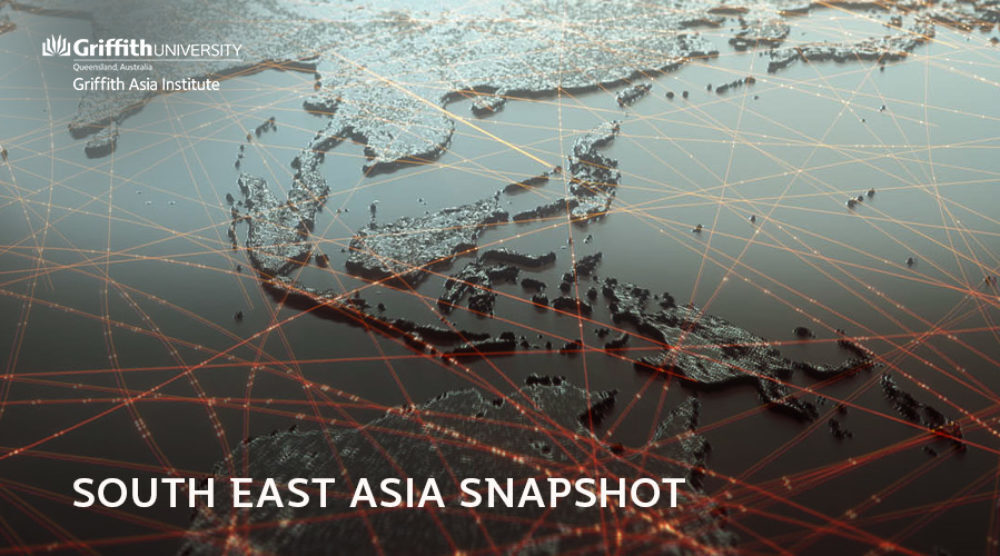Myanmar’s junta-appointed Defense Minister attends ASEAN defense meeting
On 22 June 2022, Myanmar’s military-appointed Defense Minister, General Mya Tun Oo, attended the 16th ASEAN Defense Ministers Meeting with other Southeast Asian counterparts in Cambodia despite calls from various groups to exclude the junta from the meeting.
The meeting’s joint statement commits ASEAN member states to further promote the implementation of the five-point consensus and to the continued support of the ASEAN Special Envoy. The meeting, however, was not positively received by all parties.
Some believed that allowing the Minister to attend the meeting could legitimize the junta’s attacks on human rights and democracy in Myanmar. The Cambodian Defense Minister, Tea Banh, reiterated his ambition of using forums to find resolutions to the current crisis. The Malaysian Defense Ministry presented a firm stance, stating that although the gathering involved the junta, Malaysia would never recognize the military government as a legitimate ruler of Myanmar.
Despite the attendance of all ASEAN member states at the meeting, it is clear that the junta is not recognized or accepted by the bloc. More pressure may be placed on Cambodia, as the current ASEAN Chair, to exclude the junta from upcoming ASEAN meetings.
ASEAN progress in dealing with the Myanmar crisis
Since the coup in 2021, ASEAN has struggled to manage the issues in Myanmar. On 22 June 2022, the junta moved Aung San Suu Kyi from house arrest to a secret prison in Naypyidaw. Her court proceedings will be conducted behind closed doors with limited details being released to public media. Some fear that the junta is planning to detain Aung San Suu Kyi for the rest of her life given her prison sentences exceed 100 years.
As the current ASEAN Chair, Cambodia has raised concern regarding this transfer and has urged the junta to return Suu Kyi back home due to her poor health and well-being. The ASEAN Special Envoy, Prak Sokhonn, also encouraged the military regime to exercise compassion in the process of returning Myanmar back to normalcy, assuring that the other ASEAN members share the same concerns. Interestingly, Suu Kyi’s transfer was done just a few days before the ASEAN Special Envoy’s second visit to Myanmar.
This second visit from 29 June – 3 July, aimed to push for further implementation of the five-point consensus, to assist in establishing dialogue and to deliver humanitarian assistance in Myanmar.
China has supported the visit, highlighting their commitment to humanitarian assistance by donating two million COVID-19 vaccines to ASEAN for the vulnerable in Myanmar. This falls in line with China’s attempts to reflects support ASEAN’s current agenda.
Despite the warm welcome from the military government for the Special Envoy’s visit, the junta made it clear that Prak Sokhonn would not be allowed to meet with Aung San Suu Kyi given her trial. However, the Special Envoy was allowed to meet with the junta’s leader and other ethnic armed groups to foster dialogue.
This has sparked many questions surrounding the effectiveness of the current ASEAN Special Envoy and progress toward peace in Myanmar. Some believe that this second visit will result in little progress as the junta remains resistant to cooperation in implementing the peace plan.
The spokesman for the NUG, meanwhile, expressed the impossibility of the Envoy to produce any successful outcomes given he can only meet with the junta while other important stakeholders remain barred from the meeting.
A concern that has emerged through this visit is the perception that the junta has earned the power to slow down or speed up the processes of the peace plans and dialogues. Regardless of this constraints, this visit can be viewed as a commitment made by the ASEAN Chair to see Myanmar return to peace.
The ability of the Special Envoy to conduct a second visit signals progress in establishing dialogue with some parties. This progress, however, remains limited as the junta continues to exercise control over every dialogue attempt by the Special Envoy.
Marcos Jr sworn in as President of the Philippines
On 30 June 2022, Ferdinand Marcos Jr, also known as “Bongbong”, was sworn in as the 17th President of the Philippines, succeeding outgoing president Duterte. This marks the return of Marcos rule after former dictator Ferdinand Marcos Sr was ousted from power 36 years ago.
In his inauguration speech, Marcos Jr praised his father’s efforts and urged for unity within the Philippines. He committed to tackling issues including the economic downturn, climate change, and food sufficiency in the Philippines despite the crisis in Ukraine – even appointing himself as Agricultural Minister to manage this particular challenge. Poignantly, he also reiterated a firm commitment to defend the Philippines in the South China Sea dispute.
Activists held protests at the event to vocalize their concern about the past trauma of martial law on Filipinos. Some even called on Bongbong to fix the country’s image, damaged by Duterte’s war on drugs. Others remain confident that the new president will not be as violent as Rodrigo Duterte, however, anxiety still remains that Marcos Jr may keep himself in power as his father did, despite his vow to serve the country to his best ability.
Sovinda Po is a Research Assistant at the Griffith Asia Institute.








